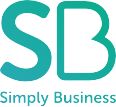Measures we are taking
Our operatives had been instructed to follow the safety procedures while they carry out their duties, they will:
- Carry and regularly use alcohol-based hand rub
- Regularly sanitise their mobile phones
Wear protective gear.
- Used cleaning materials will be sealed and disposed.
- All operatives will check their body temperature before starting their workday (in the morning, before starting their workday), and will be restricted from working in case they have respiratory symptoms.
Despite good manners, we have instructed all our operatives to keep a distance of at least 2 metres with all people they meet and refuse handshakes.
Poor indoor air quality is a predisposing factor for respiratory infections and virus spread. All our operatives are instructed to pay special attention to ensure healthful indoor air quality.
All operatives are instructed to keep the windows open during the service (where possible) in order to ensure proper ventilation inside the premises.
Increase the cleaning routines specially in the high contact areas such as door handles, chairs, phones, etc our operatives will be using sanitizers and will change cleaning cloths, mops daily.
Covid 19 cleaning - anti viral deep cleaning
We had trained our team to undertake the cleaning using verified EN1276 products, they are familiar with recommended processes and procedures:
- Collect all cleaning equipment and clinical waste bags before entering the room
- Any cloths and mop heads used must be disposed of as single use items
- Before entering the room
- On entering the room
- Cleaning process
- Cleaning and disinfection of reusable equipment
- Clean and disinfect any reusable non-invasive care equipment, such as blood pressure monitors, digital thermometers, glucometers, that are in the room prior to their removal
- Clean all reusable equipment systematically from the top or furthest away point
- Carpeted flooring and soft furnishings
- On leaving the room
- Clean, dry and store re-usable parts of cleaning equipment, such as mop handles
- Remove and discard PPE as clinical waste
- Perform hand hygiene
Cleaning of communal areas: If a suspected case spent time in a communal area, for example, a waiting area or toilet facilities, then these areas should be cleaned with detergent and disinfectant (as above) as soon as practicably possible, unless there has been a blood or body fluid spill which should be dealt with immediately. Once cleaning and disinfection have been completed, the area can be put back in use.
How Long Can Viruses and Germs Live on Surfaces?
We know now that viruses and other germs can live on surfaces for a long time. However, the amount of time it can survive on different surfaces is different. For example, surfaces like plastic can hold up the virus for a longer time compared to paper or other things. The maximum time that the COVID-19 virus can live on a surface is nine days which is on surfaces such as plastic or stainless steel, with the shortest lifespan of the virus being on paper or cardboard.
To put this into perspective, the current COVID-19 virus can survive for:
• 3 hours in the air.
• 24 hours on cardboard.
• 4 hours on copper.
• 72 hours or even more on plastic (it can go up to 9 days!).
• 48 hours on steel.
Cleaning Vs. Disinfecting
You can clean the house many times over and still find germs and viruses on the surfaces which you are unable to see.
Cleaning involves: removing dirt and dust from the surfaces, which also reduces the risk of spread of infection as the pathogens in the dust and particles would be wiped away. On the other hand, disinfection involves: the use of chemicals to kill germs, which would kill the bacteria and viruses, and the risk of spread of illnesses is much lower.
Cleaning means wiping and dusting surfaces, vacuuming carpets and mopping floors.
Disinfecting, however, means targeting those surfaces which have a higher chance of being infected and carrying the virus, such as door handles, switches, remote controls, toilet, desk and chairs, taps and telephones etc.
How Often Should Antiviral Cleaning be Done?
While disinfecting, we must bear in mind that disinfecting does not necessarily mean cleaning and vice versa. So, for example, if you have disinfected a surface with any disinfectant cleaning agent you would still need to clean the surface afterwards with a clean cloth.
Now the question arises, how often should we be doing this? A general guideline is the high-touch surfaces must be disinfected and cleaned more frequently, for example, every time someone comes in from outside.
Some common high-touch surfaces are:
• Door Handles
• Tables
• Back of chairs
• Light switches
• Stairs bannisters
• Toilets etc.
If anyone has come down with something, from a cold to COVID-19, this should be done more often, such as every time the person touches the surface. Although, it would be considerate if the person could use gloves.
in certain circumstances is unavoidable so for this to happen, all visitors would need to educate themselves on the importance of hygiene, disinfection and cleaning so everyone would have a clear knowledge and understanding of what is expected of them.
